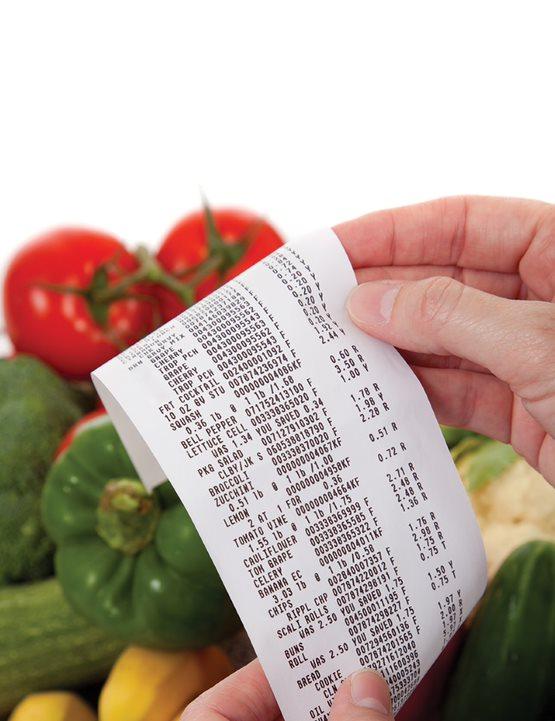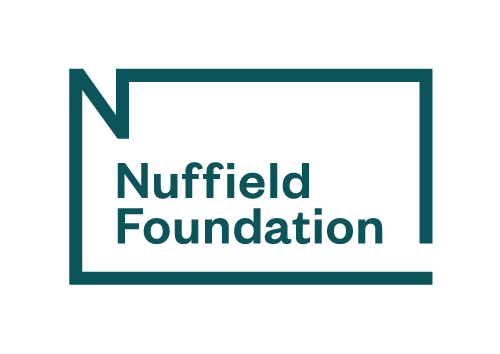18 October 2022
Alarming increase in food insecurity now affecting four million children

Latest data from The Food Foundation’s authoritative Food Insecurity Tracker * shows a rapidly worsening picture as the cost of living crisis deepens, adding a growing urgency to the need for government action to help those worst hit by the continuing rise in food prices. This data reinforces the need for our Feed the Future campaign and the expansion of Free School Meals to all households receiving Universal Credit.
Key findings:
- 4 million children live in homes without adequate access to food
26% of households with children have experienced food insecurity in the past month. This has increased by 50% since April, compared to households without children where the increase has been 26% in the same time frame, reflecting the severity of the impact of current economic conditions on the youngest population group.
- Larger families are worst hit
Among households with three or more children 42% have suffered some form of food insecurity in the past month, compared to 16% of households with no children. The Government’s cost of living support package does not account for household size and so families with children, particularly larger families have suffered. More action is needed to help households with children.
- Total number of households affected has doubled
The new data show that in the past month, 9.7 million adults or nearly one in five households (18%) have been unable to afford or get food so they have eaten less, skipped meals or gone without meals for an entire day. This is double the number affected in January.
- More Universal Credit claimants are affected
A total of 54% of households receiving Universal Credit say they are struggling to get the food they need*.
- Lack of money means cold food and cold water
Most of those affected by food insecurity say lack of money is their biggest problem. Now there is a parallel need to cover rising energy costs. 71% of households who have experienced food insecurity in the past month said they have cooked less, eaten food cold, turned off fridges or washed dishes in cold water.
- Less fruit and vegetables
People living in poverty have a worse diet. While 30% of all households with children said they had cut back on the quantity of food they bought, 35% said they had cut back on quality. Among those experiencing food insecurity, 58% said they were buying less fruit and 48% said they were buying less vegetables.
For the full results see here.
The Food Foundation is calling for:
- Urgent action to ensure that all children in poverty have access to at least one nutritious meal a day at school by expanding the provision of Free School Meals to all children on Universal Credit. For more on our Feed the Future Campaign click here.
- Renewed Government commitment to increase benefits in line with inflation to prevent the shocking levels of food insecurity in households with people on Universal Credit and people with disabilities increasing even more dramatically.
- Action by retailers to make it easier for people to afford the food they need and rebalance the cost of a basic shopping basket to make the healthy options the most affordable.
Anna Taylor, Executive Director of the Food Foundation, said: "There are very serious physical and mental health implications from these worsening trends. It is hard for people who have never had to worry about having enough food to understand what it might feel like and we’re continuing to call on the Government to make this a priority.
"We want to see the expansion of Free School Meals to children on Universal Credit to ensure that every child is guaranteed a healthy, nutritious meal every school day, to take some pressure off families’ budgets.
"We want the Government to increase benefits in line with inflation and ensure employers pay at least the real living wage so people can pay essential bills.
"We also want to see measures introduced to make fruit, vegetables and other healthy foods available to those on the lowest incomes, so they are not forced into a poor diet of cheap processed food which promotes obesity."
Gwen Hines, Save the Children UK chief executive, said: "No child should struggle through the school day because they are hungry.
"Yet, right now, 800,000 children living in poverty do not have access to free school meals and are missing out on healthy, nutritious food.
"Clearly, this is unacceptable and excludes many children from getting what could be their only hot meal of the day.
"The current £7,400 household income threshold to qualify is far too low and excludes families who are really struggling.
"Extending free school meals to all children whose families receive Universal Credit is the right and fair thing to do."
Lynn Perry MBE, CEO of Barnardo’s the UK’s largest children’s charity said: "The cost of living crisis is increasingly frightening for vulnerable families, with children at risk of going hungry, living in cold homes and missing out on everyday essentials.
"This new data from the Food Foundation highlights the scale and severity of the challenge and underscores the need for urgent action.
"As a first step to address the impact of poverty on children’s health, we are calling on the Government to extend access to Free School Meals in England, so it reaches all those in need.
This should ensure that no child goes without at least one hot and healthy meal every day."
Genevieve Hadida, London School of Hygiene & Tropical Medicine, said: "Thanks to the Food Foundation’s Food Insecurity Tracker, we now have better data than ever before on the difficulties faced by UK families.
"Nearly one in five households are eating less or skipping meals, primarily because of affordability issues.
"This alarming rise in food insecurity demands urgent intervention to prevent some very damaging long-term health consequences."
Catherine Dennison, of The Nuffield Foundation, said: "These figures represent a shocking increase in the number of households experiencing food insecurity, and the increase among families with children is particularly concerning.
"Analysis by the IFS, supported by Nuffield Foundation, published last week in the Green Budget suggests annual food price inflation will accelerate to around 17% by next spring.
"This can only cause additional pressure on families already struggling to cover household costs."
The Food Foundation’s Food Insecurity Tracker
Notes to Editors:
Available for Interview – Anna Taylor, Food Foundation Executive Director
Press Contact: Lois Rogers - Lois.Rogers@foodfoundation.org.uk - 07770 350822
About the Food Insecurity Tracker
The Food Foundation has been commissioning a series of nationally representative surveys since the outbreak of the Covid pandemic in March 2020, to assess the impact of household food insecurity across the UK. We track and report on the experiences of food insecurity among thousands of people, particularly focusing on specific groups such as families with children, ethnic groups, people with disabilities and people on benefits. This is the eleventh round of the survey.
All figures, unless otherwise stated, are from YouGov Plc. Total sample size was 4,280 UK adults. Fieldwork was undertaken between 21st – 23rd September 2022. The survey was carried out online. The figures have been weighted and are representative of all UK adults 18+. The figures presented from the online survey have been analysed independently by The Food Foundation and the London School of Hygiene & Tropical Medicine. Comparison to older figures is from a series of previous surveys conducted with YouGov commissioned by The Food Foundation. Population calculations made by the Food Foundation are based on the most recent available estimates from the Office for National Statistics (www.ons.gov.uk).
*Food Insecurity is characterised above as people ‘struggling to get the food they need,’ and formally defined as experiencing one or more of the following:
- Having smaller meals than usual or skipping meals because of being unable to afford or get access to food;
- Being hungry but not eating because of being unable to afford or get access to food;
- Not eating for a whole day because of being unable to afford or get access to food.
The Fusion21 Foundation has co-funded the YouGov survey, however, the views expressed and the findings are those of the authors. The foundation was set up by national social enterprise Fusion21, which provides procurement solutions to public sector organisations whilst also delivering social value you can see.
SOCIAL MEDIA
Twitter: @Food_Foundation
Instagram: food.foundation
#CostofLivingCrisis
#EndChildFoodPoverty
#Poverty
#FoodPrices
#Food Insecurity
#Right2Food
About The Food Foundation
The Food Foundation is a charity working to influence food policy and business practice, shaping a sustainable food system which makes healthy diets affordable and accessible for all. We work in partnership with researchers, campaigners, community bodies, industry, investors, government and citizens to galvanise the UK’s diverse agents of change, using surprising and inventive ideas to drive fundamental shifts in our food system. These efforts are based on the continual re-evaluation of opportunities for action, building and synthesising strong evidence, convening powerful coalitions, harnessing citizens’ voices and delivering impactful communications.
Registered Charity Number 1187611.
About the Fusion21 Foundation
Fusion21 is a national social enterprise specialising in efficient and impactful public sector procurement and social value services. The Fusion21 Foundation was set up as a registered charity, to help build brighter futures for the communities that Fusion21 operate in and has three areas of focus: Employment and Skills; Health and Wellbeing; Financial Inclusion and Resilience. Since its inception in 2015, the foundation has given over £1.2 million in grants and has committed £2 million in social investment. The Fusion21 Foundation has co-funded the YouGov survey, but the views expressed are those of the authors and not necessarily of the Fusion21 Foundation.
Twitter: @Fusion21SocEnt
LinkedIn: Fusion21
YouTube: Fusion21
Web: www.fusion21.co.uk





